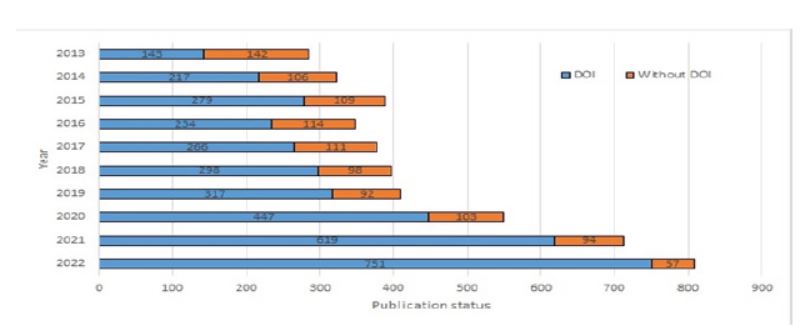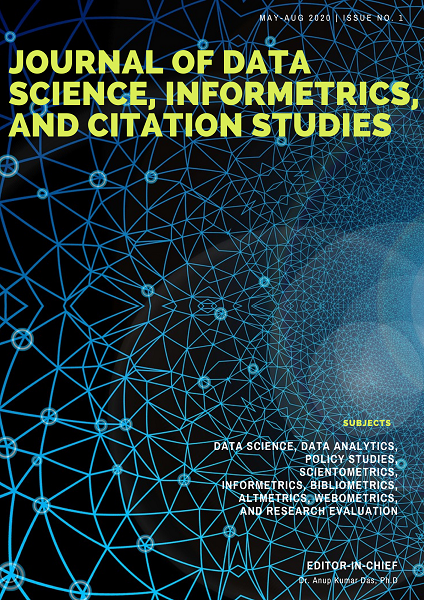Unveiling the Status of Open Access Dairy Research in India through Data Carpentry
DOI:
https://doi.org/10.5530/jcitation.3.1.1Keywords:
Open Access Publication, Dairy Research, OpenAlex, OpenRefine, Data CarpentryAbstract
The present study examined the open-access status of dairy research publications published by Indian institutions. The study utilized Scopus to source the required data for a 10-year period (2013-2022) and employed a data carpentry approach for cleaning and processing the data. Data carpentry tools/software such as Open Refine, OpenAlex, Dimensions.ai, and Altmetric.com were utilized in various instances for different purposes. Findings reveal that 35.26% of publications were distributed across various open-access categories and were used in the study to generate the analysis. The study indicates that DOI-based publications increased over time, while Open-Access (OA) publications consistently maintained a share exceeding 30%. Gold OA is prevalent in terms of occurrence, citations, and altmetrics, with other OA categories also significantly present. The CC-BY license is mostly used as an OA license, and among the 10 document types, "Article" is the most prevalent. The "Journal of Food Science and Technology" holds the highest number of OA publications, while Elsevier BV is the highest contributing publication agency. Further study reveals that the three-authorship pattern mostly occurred in open-access publications of dairy research, with a prevalent multiple-authorship pattern. The ratio of citations was found to be higher for open-access publications compared to closed access, and the altmetric attention score was also found to be higher for open access publications than for closed ones. ICAR-National Dairy Research Institute emerged as the top contributor of OA publications in dairy research. Lastly, the study discusses the limitations and future prospects of the research, providing a comprehensive overview of the conducted analysis.

Downloads
Published
How to Cite
Issue
Section
License
Copyright (c) 2024 Abhijit Roy, Akhandanand Shukla

This work is licensed under a Creative Commons Attribution-NonCommercial-NoDerivatives 4.0 International License.



